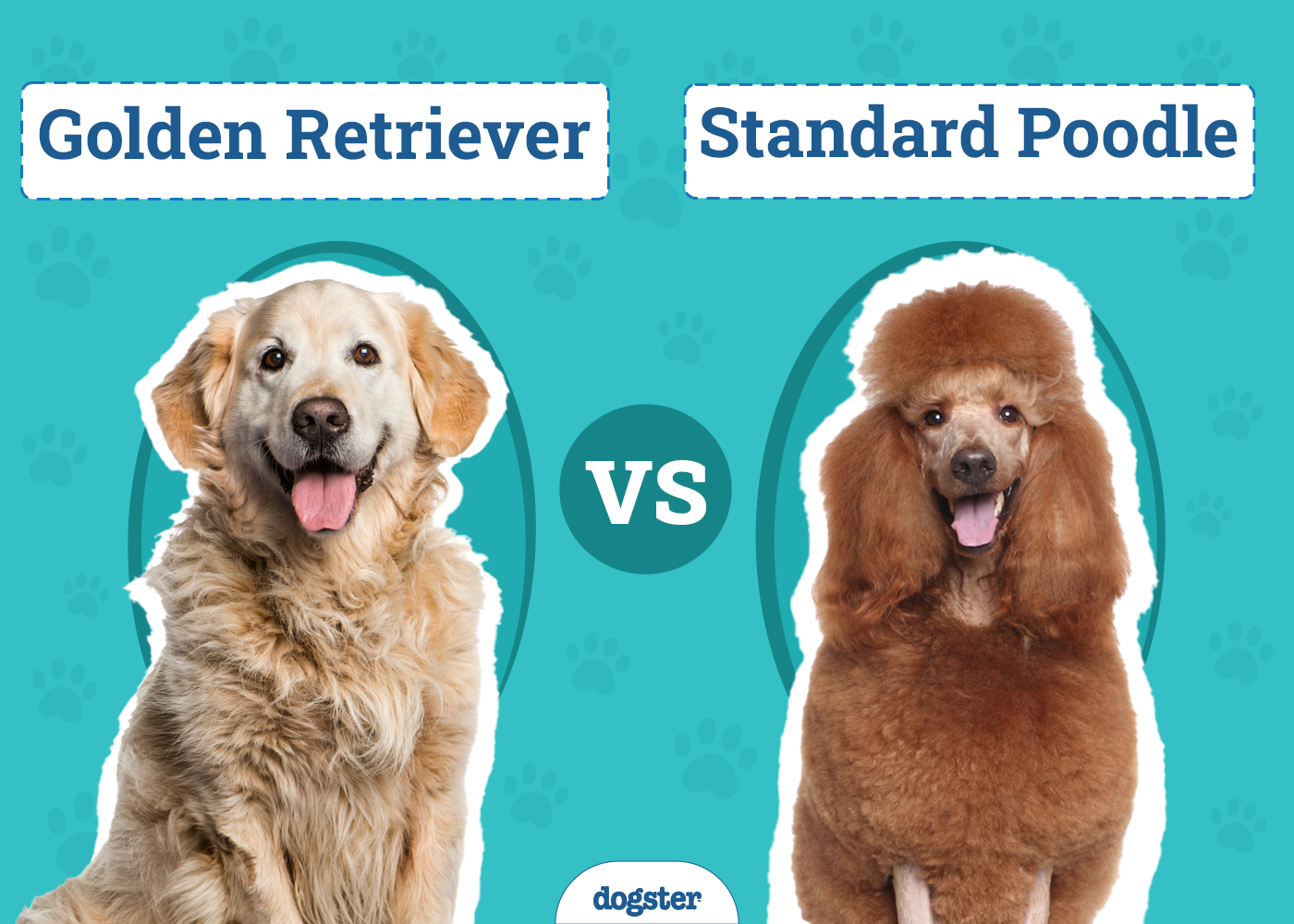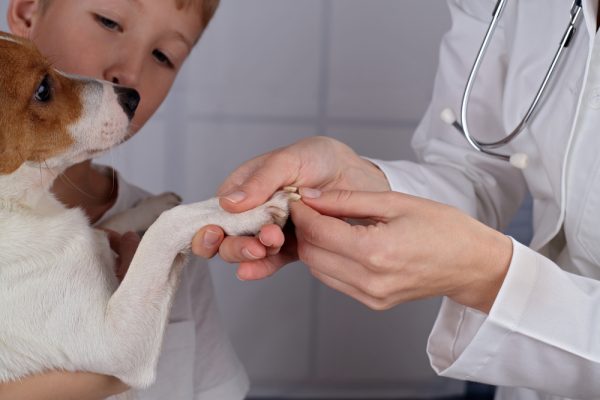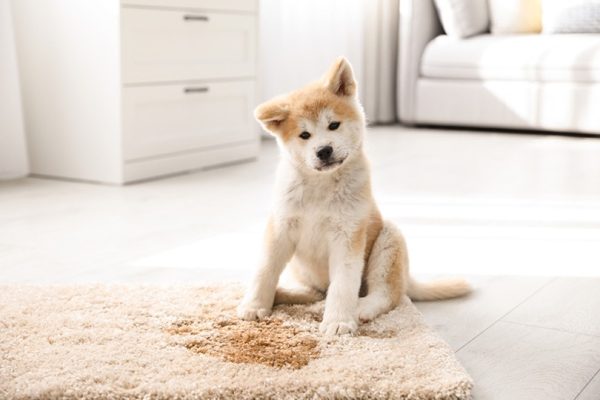In this article
View 3 More +Golden Retrievers and Poodles are both awesome pets. They have their flaws, but they have wonderful attributes that tend to outweigh those flaws. However, since they are different breeds and thus, have different attributes, one may not be a suitable pet choice for your family and household. Size, temperament, activity levels, and inherent traits all play a role in how a dog behaves and gets along with others.
It is important to understand the differences between these two breeds to understand which might be the best fit for your lifestyle and preferences. It can be tough to know where to get started when it comes to comparing two different dog breeds, so we did all the hard work for you! Here’s everything that you need to know about Golden Retrievers and Poodles and how they compare. You’ll soon have a clear idea of which breed is best for you. Let’s get started:

Visual Differences
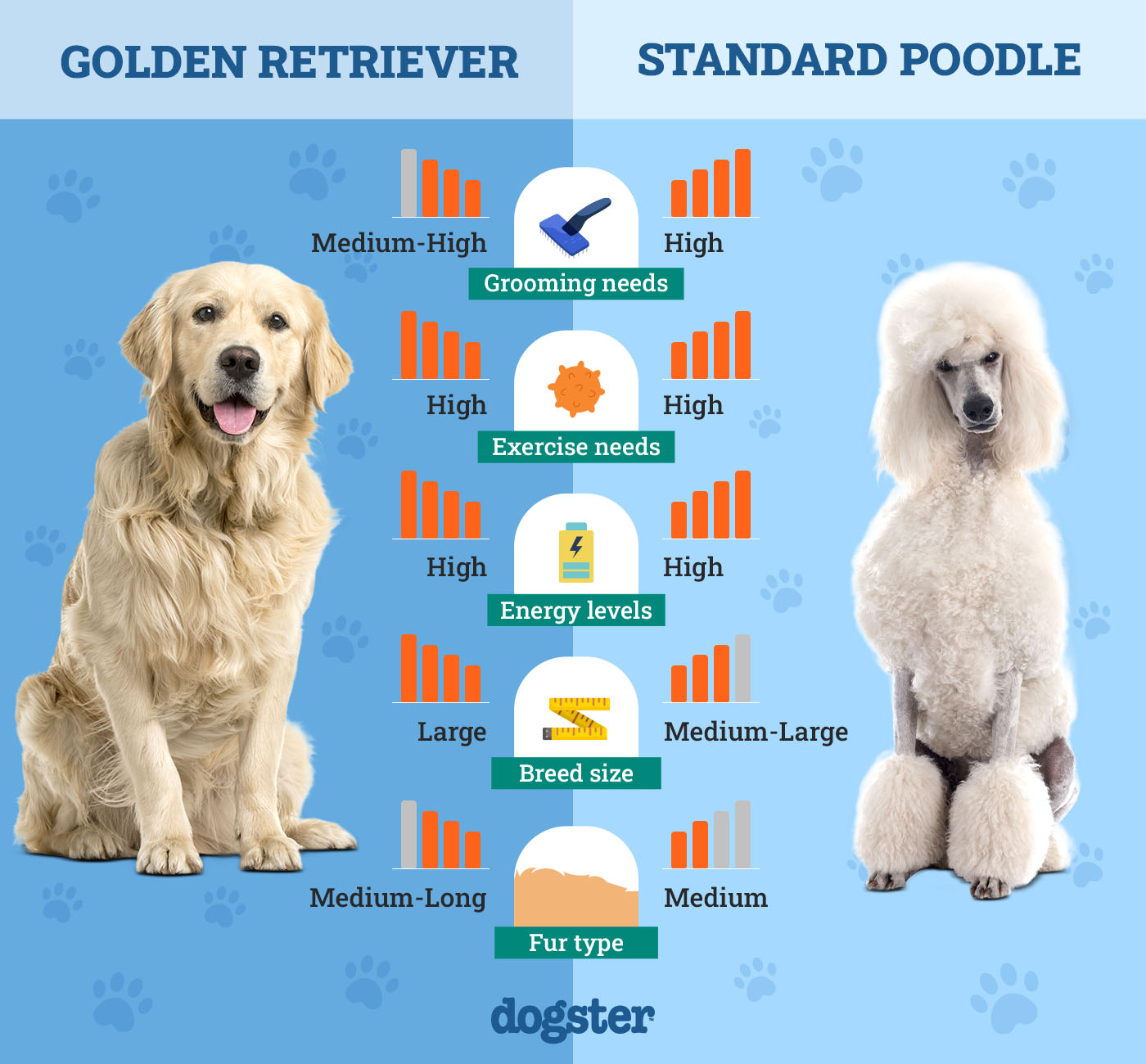
At a Glance
- Average height (adult): 20 – 24 inches
- Average weight (adult): 55 – 75 pounds
- Lifespan: 10 – 12 years
- Exercise: 2+ hours a day
- Grooming needs: Moderate
- Family-friendly: Yes
- Other pet-friendly: Often
- Trainability: Intelligent, even-tempered, affectionate, loyal
- Average height (adult): 15 – 24 inches
- Average weight (adult): 45 – 70 pounds
- Lifespan: 12 – 15 years
- Exercise: 1+ hours a day
- Grooming needs: High
- Family-friendly: Yes
- Other pet-friendly: Often
- Trainability: Alert, easily trainable, interactive, smart

Golden Retriever Overview
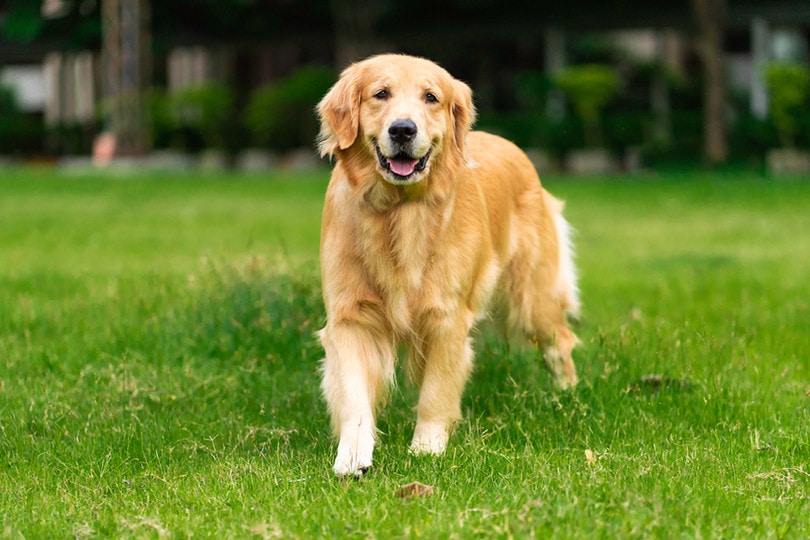
The Golden Retriever is a fun-loving breed that tends to be good with adults and kids alike. These dogs can be rambunctious, but a brisk walk and a bit of time at the dog park or playing in the yard can help keep them calm and happy. Most Golden Retrievers have big personalities that are hard to resist, especially when it comes time to adventure outside.
This dog breed loves to run and play, they do great when it comes to training and agility, and they don’t mind getting wet at the swimming pool or beach. They do require grooming, and they have various health conditions that they are genetically predisposed to, which are important things to keep in mind.
Training
Training is essential for a Golden Retriever. Without it, your dog can become unruly by the time that they are fully grown. They must understand how to behave in social settings and how to be gentle around young children. They also need to know how to stick by your side when you’re outside exploring. Fortunately, Golden Retrievers are intelligent and eager to please, making them quite easy to train even as puppies. It’s a good idea to start obedience training as soon as you bring home your new Golden Retriever.
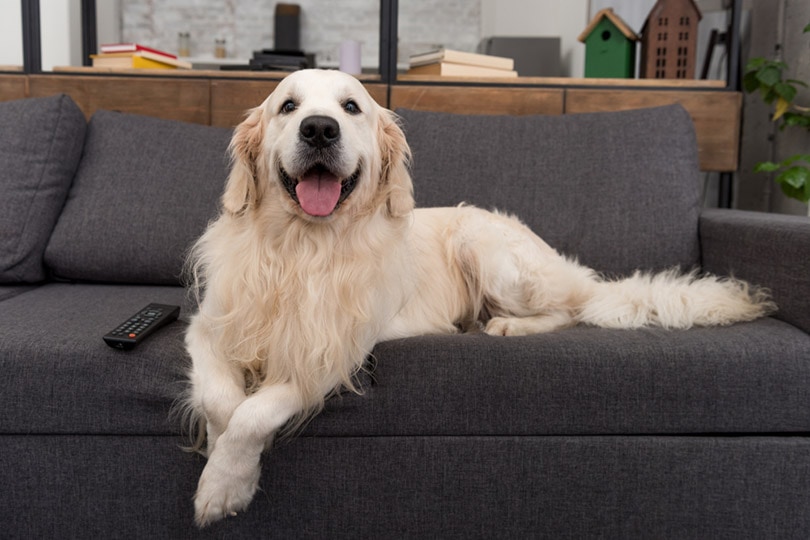
Health & Care
This is a typically healthy dog breed with a lifespan of about 10 to 12 years. Unfortunately, some Golden Retrievers are poorly bred and develop problems such as allergies, eye problems, and cancer. Therefore, it’s important to deal with a reputable breeder if you plan to purchase a Golden Retriever. Also, Goldens are predisposed to certain health issues that owners should be aware of. These include:
- Skin inflammation
- Ear infections
- Hypothyroidism
- Hip and elbow dysplasia
- Progressive retinal atrophy
Regular checkups and preventative care should minimize the risk that your Golden Retriever will develop any of these problems. Chances are that your vet will catch any problem that does develop early so that it can be addressed before it becomes a serious issue.
Suitable For:
Golden Retrievers are suitable for families of all shapes and sizes. These dogs get along with children of all ages, and they are good in households with multiple pets. They can live in an apartment, but they would need access to outdoor exercise for at least 2 hours a day. Houses with fenced yards are ideal.

Standard Poodle Overview
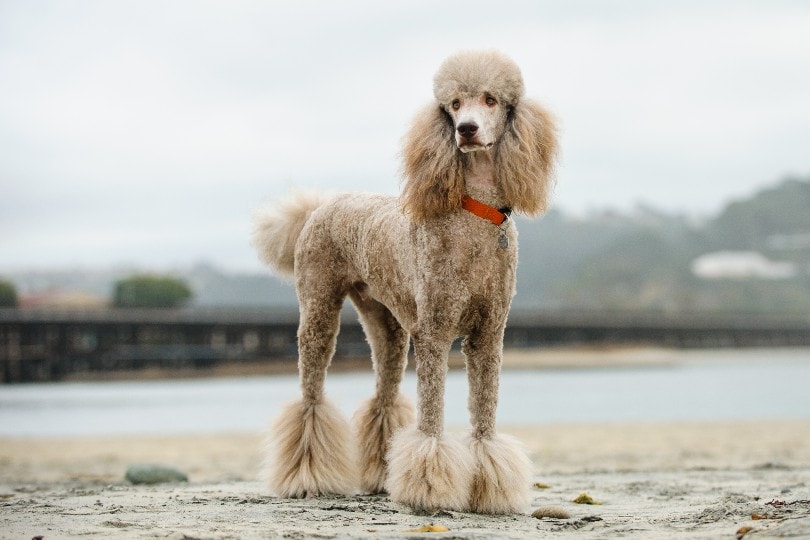
The Standard Poodle is a sight to behold. Their abundant curly coat, long and hardy body, and bright eyes set them apart from all the other dogs out there. This breed has long been popular throughout the United States, especially among those who take dog shows seriously.
These dogs weigh about the same as Golden Retrievers, and they are just as athletic, but they don’t typically require as much daily exercise to stay happy and healthy. Poodles are smart yet sometimes sassy. They don’t particularly care about pleasing their owners like Golden Retrievers do, but they are loyal, and they do get along well with children for the most part.
Training
Standard Poodles can take up to 24 months to mature, which is when they should have obedience training on lock. These dogs are smart, but they aren’t focused on people pleasing, so extra patience and rewards will help make the training process optimally effective. Poodles are social dogs, so they should learn how to behave and react in strange settings where people new to them are likely to be spending time.

Health & Care
While Poodles can live long and healthy lives, they are genetically predisposed to a variety of health conditions. Many Poodles get ear infections sometime in their lives. Some develop epilepsy. Thyroid issues are common problems. Other health conditions that potential owners should be aware of include:
- Addison’s disease
- Gastric torsion
- Progressive retinal atrophy
- Cataracts
- Hip dysplasia
- Cancer
Like Golden Retrievers, Poodles should receive regular veterinarian care so these conditions can be watched for. Providing your dog with a healthy diet, plenty of exercise, and daily interaction and attention will help keep them healthy, no matter their genetic predispositions.
Suitable For:
Poodles are best suited for households that do not include young children, as they can be rambunctious and territorial over their space and their owners. However, these dogs do get along well with kids who are old enough to understand how to properly deal with dogs. A Poodle can comfortably live in an apartment if they get daily walks.

Which Breed Is Right for You?
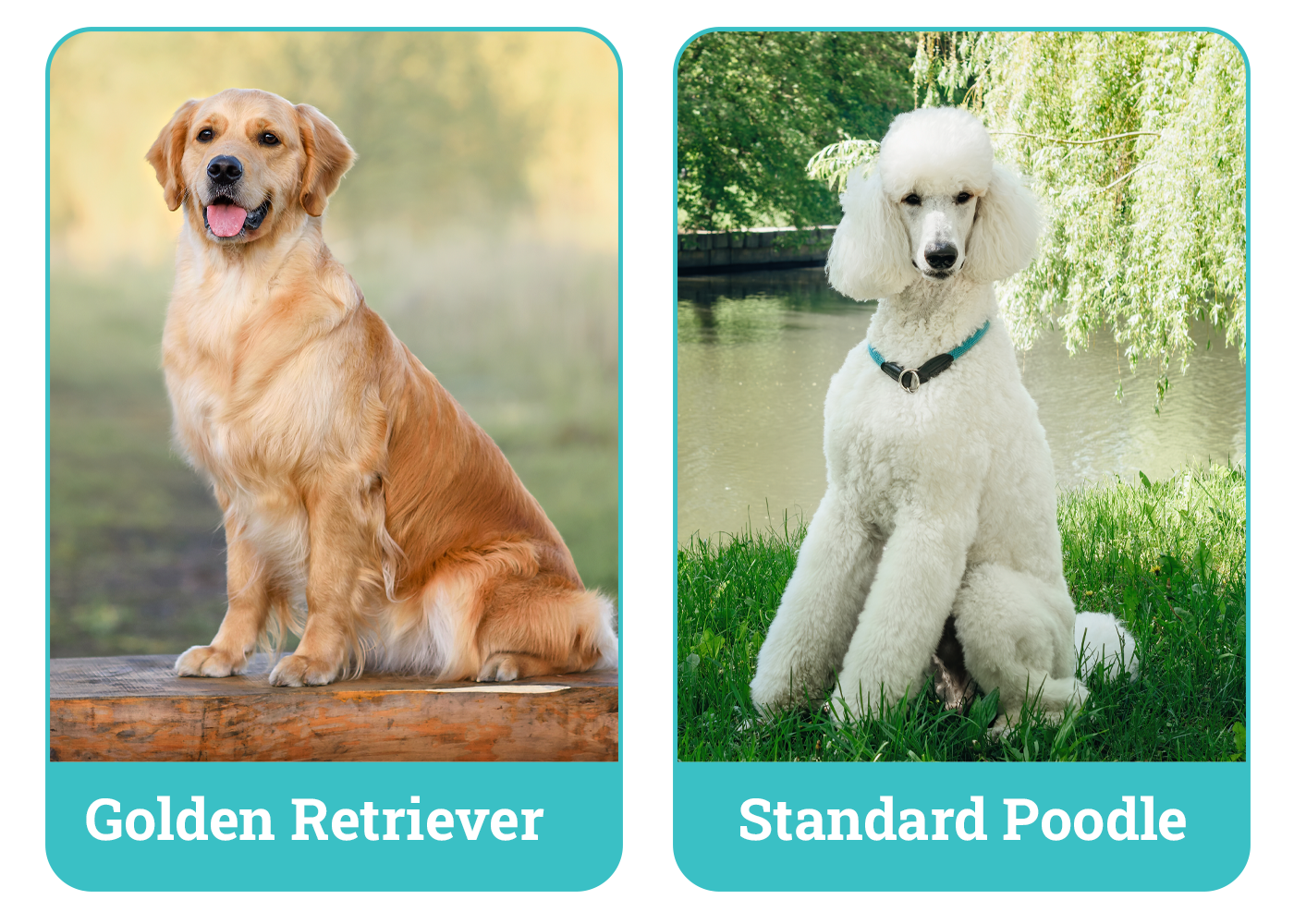
Deciding whether the Golden Retriever or the Poodle is right for you comes down to your personal lifestyle, your ability to provide exercise opportunities, and the kind of personality and temperament that you prefer. Make a list of pros and cons for each breed, and talk to your family about which breed they are leaning toward based on the list. From there, you should be able to determine which breed is the best choice for your family.
- You may also be interested in: When Do Puppies’ Eyes Change Color? What You Need To Know
Featured Image Credit: Left – Golden Retriever (SasaStock, Shutterstock); Right – Black Standard Poodle (Tim Wilson from Blaine, MN, USA via Wikimedia Commons, CC BY 2.0)
